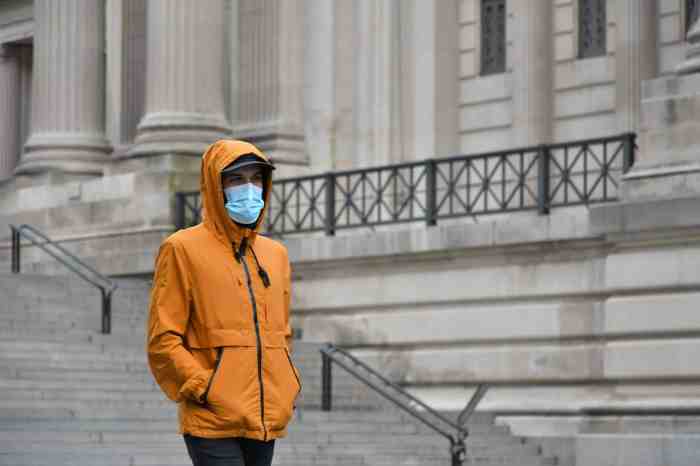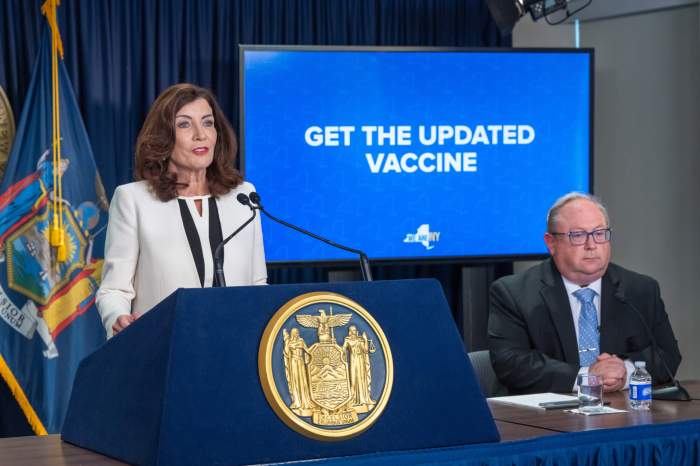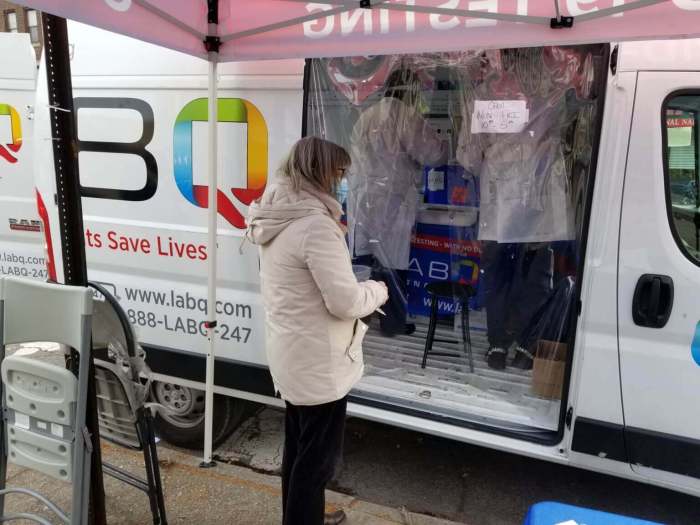BY ANGÉLICA ACEVEDO
Senator Kirsten Gillibrand said legislators are working to include at-risk immigrant families and vulnerable communities in the next COVID-19 relief package, starting with the Coronavirus Immigrant Families Protection Act.
“Everyone should have access to these relief benefits, regardless of immigrant status,” Sen. Gillibrand told QNS.
According to New York City’s Department of Health’s statistics of COVID-19 deaths by race and ethnicity, Latin and Black individuals have disproportionately died due to the virus. Some of the most impacted neighborhoods in Queens — Corona, Jackson Heights, Elmhurst — as well as other neighborhoods across the five boroughs are home to large populations of Latin and Black communities, according to The City’s coronavirus tracker.
The bicameral Protection Act was introduced by Gillibrand and fellow Senators Mazie K. Hirono (D-HI) and Kamala Harris (D-CA) as well as Representatives Judy Chu (D-CA), Raul Grijalva (D-AZ) and Lou Correa (D-CA) to help immigrants and other vulnerable communities that weren’t addressed in previous relief packages.
According to Gillibrand, the bill would ensure all communities can access COVID-19 testing and treatment, and would provide $100 million in funding for the Centers for Disease Control and Prevention (CDC) to conduct public outreach in multiple languages to hard-to-reach populations.
The Protection Act would also temporarily modify immigration policies that deter immigrants from receiving the medical care and support they need. This includes suspending the public charge rules, in-person ICE checks, the immigration detention and deportation of survivors of domestic violence, sexual assault, and human trafficking who have pending immigration applications; as well as suspending immigration enforcement actions at or in transit to or from sensitive locations like hospitals, courthouses, domestic violence shelters, and other sensitive locations.
The measures would be in place during the current COVID-19 emergency, and 60 days after the emergency ends.
The bill would also ensure everyone has access to COVID-19 testing, treatment and vaccines by providing coverage of those services under Medicaid to everyone, regardless of immigration status. It would also prohibit discrimination in any program funded by a coronavirus relief bill based on actual or perceived immigration status.
To address the lack of immigrant and undocumented inclusion on the federal government’s previous package, the Protection Act would ensure access to COVID-19 relief measures to them by allowing immigrant taxpayers to access cash relief benefits with an individual tax identification number (ITIN). It would also automatically extend expiring work authorization for immigrants during the COVID-19 emergency.
But Gillibrand doubts the Coronavirus Immigrant Families Protection Act will pass easily, due to what she says is staunch opposition from Republicans.
“That’s why I’m urging families to fight back by filling out the census and voting,” said Sen. Gillibrand.
The bill has garnered support from many organizations, such as the Center for Law and Social Policy (CLASP), National Immigration Law Center (NILC), National Immigrant Justice Center (NIJC), Asian & Pacific Islander American Health Forum (APIAHF), Coalition for Humane Immigrant Rights (CHIRLA), and Casa de Esperanza.
Gillibrand noted that while there is still much more to be done to help the most vulnerable populations, electeds are working to lift up their voices.
“They are strong and resilient, and they will survive,” Sen. Gillibrand said. “We have to help one another, and we are pushing for more support.”
This story first appeared on qns.com.


















